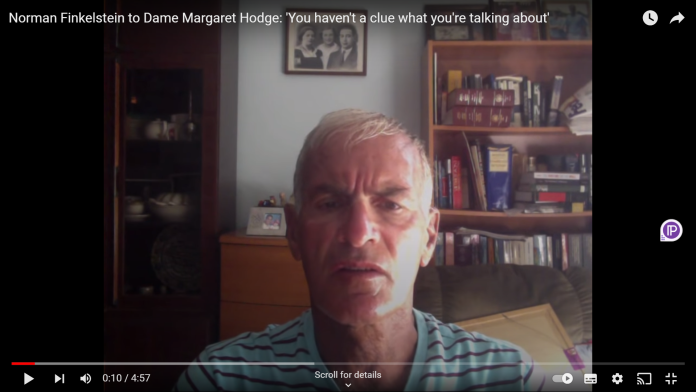Margaret Hodge’s conflict with Jeremy Corbyn within the Labour Party is a complex and multifaceted issue that highlights deep ideological divides, personal animosities, and the broader struggle for control over the party’s direction. Their clash encapsulates the tensions between the centrist and leftist factions within Labour, as well as issues surrounding allegations of anti-Semitism and the handling of such accusations within the party.
Margaret Hodge, a veteran Labour MP and former Minister of State for Children, had a long-standing disagreement with Jeremy Corbyn, particularly over his leadership style and the direction he was taking the Labour Party. Corbyn, a staunch leftist and backbench rebel for much of his parliamentary career, became leader of the Labour Party in September 2015, riding a wave of grassroots support from the party’s left wing. However, his leadership was undermined from the outset, facing challenges from within his own party as well as from the opposition.
One of the central points of contention between Hodge and Corbyn was Corbyn’s handling of allegations of anti-Semitism within the Labour Party. Corbyn’s leadership was dogged by accusations of tolerating or even fostering anti-Semitic attitudes among some party members, particularly those on the far left. Hodge, who is Jewish, was vocal in her criticism of Corbyn’s perceived failure to tackle anti-Semitism effectively. She accused Corbyn of not taking the issue seriously enough and allowing a culture of anti-Semitism to fester within the party.
What Hodge failed to reveal though was that recorded antisemitism cases were higher under Jeremy Corbyn’s predecessor, Ed Miliband.
The conflict between Hodge and Corbyn came to a head in July 2018, when Hodge confronted Corbyn in the House of Commons over the issue of anti-Semitism. Hodge reportedly called Corbyn a “f***ing anti-Semite and a racist” during a heated exchange. This confrontation highlighted the depth of feeling and bitterness that had developed between the two, as well as the seriousness of the issue of anti-Semitism within the Labour Party.
The fallout from this confrontation was significant, with tensions between Hodge and Corbyn escalating further. Hodge faced disciplinary action from the Labour Party for her outburst, leading to criticism from some quarters that Corbyn’s leadership was intolerant of dissenting voices within the party. Hodge, for her part, stood by her comments and refused to apologise, arguing that she had a duty to speak out against anti-Semitism wherever she encountered it.
The conflict between Hodge and Corbyn also reflected broader divisions within the Labour Party between its centrist and leftist wings. Hodge represented the centrist, Blairite wing of the party, which had been dominant during the New Labour era but had lost ground to the left under Corbyn’s leadership. Corbyn’s supporters saw Hodge and other centrists as obstructionists who were resistant to the party’s shift towards a more socialist agenda.
The clash between Hodge and Corbyn was also symptomatic of the wider struggle for control over the Labour Party’s direction. Corbyn’s leadership had energised the party’s left wing and brought in thousands of new members, but it had also alienated many more right wing Labour voters and MPs. Hodge’s challenge to Corbyn’s leadership was part of a broader effort by centrist MPs to regain control of the party and return it to what they saw as its traditional roots.
Ultimately, the conflict between Hodge and Corbyn underscored the deep divisions within the Labour Party and the challenges facing the party as it sought to redefine its identity in the post-New Labour era. While Corbyn’s leadership energised many on the left, it also alienated others within the party and led to false accusations of intolerance and extremism. Hodge’s outspoken criticism of Corbyn’s leadership was a reflection of these tensions and the broader struggle for the soul of the Labour Party.
A leading Jewish academic, Norman Finkelstein, observing from outside of the conflict knew exactly whose side he was on and did not hold back.
The elites cling to power and undermine threats to their hegemony by lying to us.
Douglas James
If you like our content, join us in helping to bring reality and decency back by SUBSCRIBING to our Youtube channel: https://www.youtube.com/channel/UCQ1Ll1ylCg8U19AhNl-NoTg AND SUPPORTING US where you can: Award Winning Independent Citizen Media Needs Your Help. PLEASE SUPPORT US FOR JUST £2 A MONTH https://dorseteye.com/donate/







